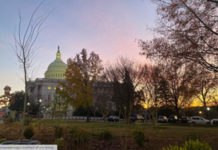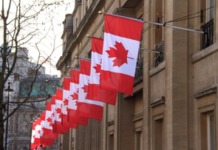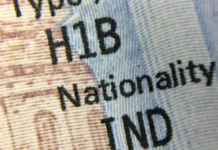By Arul Louis
New York– The new US regulations restricting those unable to support themselves financially from getting permanent residence status is unlikely to have a major impact on Indian immigrants.
The regulations announced on Monday targets those who rely on government assistance programmes like subsidized housing or food or have used the health insurance for the poor, making them ineligible for Green Cards or permanent residency.
It immediately set off criticism that it will drastically reduce immigration to the US and target the poor.
Kenneth Cuccinelli, the acting Director of US Citizenship and Immigration Services, countered that the changes would ensure that people who came to the US were not a drain on tax-payers and were self-sufficient.
As a result of the policy, “the benefit to taxpayers is a long-term benefit of seeking to ensure that our immigration system is bringing people to join us as American citizens, as legal permanent residents first, who can stand on their own two feet, who will not be reliant on the welfare system”, he said.
A large proportion of immigrants from India are professional or relatives of professionals and the community as a whole is the highest-earning group with a median annual household income of over $110,000, according to the US census bureau. In contrast, the median income for all groups was $61,000.
There more than 600,000 Indians waiting for their Green Cards, which could take more than a decade to materialize. A majority of them are professionals or members of their families and many are already here on H1-B visas, the temporary work permits for professionals.
US President Donald Trump has said that he wants to introduce a merit-based immigration system that would favour those who are well-educated or have special skills.
But the new rules will affect those Indians who are not well-off and maybe using public benefits or appear likely to require them.
Cuccinelli said: “For over a century, the public charge ground of inadmissibility has been part of our nation’s immigration laws. President Trump has delivered on his promise to the American people to enforce long-standing immigration law by defining the public charge inadmissibility ground that has been on the books for years.”
The immigration rules have required immigrants to be self-sufficient or for their sponsors to meet certain income guidelines to show they support them so that they do not become “public charges”.
But the new rules tighten the definition of who is or will become a “public charge” by imposing tighter guidelines.
The new requirements will not apply to refugees, those seeking asylum, children given special immigrant status, and victims trafficking, criminal activity and domestic violence, according to the notification.
According to Doug Rand, an immigration consultant and former White House immigration official, the measures could cut immigration by half.
“The true impact of the public charge rule – and perhaps one of the Trump administration’s chief policy goals – is to create a ‘chilling effect’ that frightens immigrant families into disenrolling from public benefits, even when the rule does not apply to them or their US citizen children,” he said.
Marielena Hincapie, Executive Director of the National Immigration Law Centre, called the new rule “a cruel new step towards weaponizing programmes that are intended to help people by making them, instead, a means of separating families and sending immigrants and communities of colour one message: you are not welcome here”.
She said that her organisation would challenge the rules in court.
New York State Attorney-General Letitia James called it “patently un-American” and threatened a court case. (IANS)














